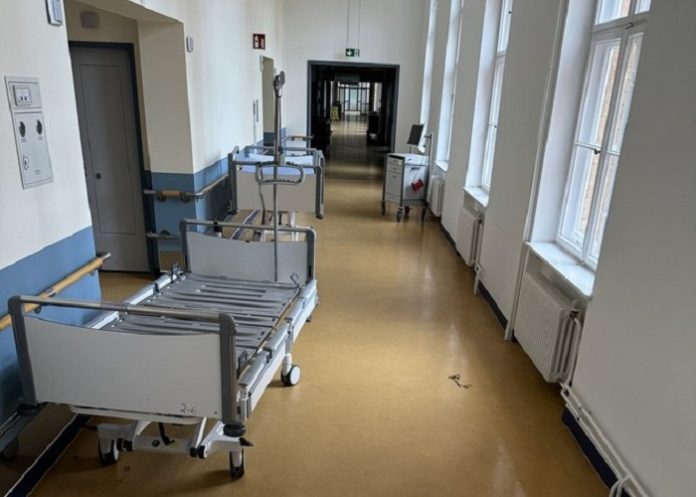The current state – and deterioration of – South African public health facilities is well documented, and yet without urgent investment in infrastructure, the system we rely on to deliver this dream may not cope, warns Luyanda Njilo in BusinessLIVE.
As we edge closer to implementing the National Health Insurance (NHI) scheme, the conversation is shifting towards a core question: can our healthcare system support the weight of universal access?
The ambition behind NHI is noble: equitable, quality care for all. However, the reality on the ground suggests a more sobering truth.
The first challenge is financial. The 2025 national budget reflects a country under strain, where rising demands meet shrinking resources. Tax revenues are under pressure, and while the government is exploring indirect mechanisms such as fiscal drag and VAT hikes, these are temporary fixes, not solutions.
Even with a R277bn allocation to healthcare this year, the balance sheet doesn’t tell a reassuring story. More than R22bn is already spoken for, covering backlogged accruals and long-unfilled vacancies.
What remains barely scratches the surface of what is required to build, refurbish or modernise hospitals and clinics at scale. Capital investment, arguably the most critical requirement for the success of NHI, has been squeezed to the margins.
But funding is only part of the problem. The deterioration of public health infrastructure is well documented and, more worryingly, visible. Steve Biko Academic Hospital and Rahima Moosa Mother & Child Hospital have become shorthand for a system in distress. The issue is no longer theoretical; it directly affects patients who face long wait times, medical professionals working with unreliable equipment, and families dealing with the consequences of delayed or unavailable care.
The numbers confirm what the stories above already reveal. Just 30% of public hospitals meet minimum compliance standards set by the Office of Health Standards Compliance. Public clinics perform only slightly better, with only slightly more than half deemed compliant.
This means that if NHI were rolled out in full tomorrow, most facilities would fall short of the expectations set by the policy designed to serve the nation.
And that is before we account for chronic power outages, equipment failures and staff shortages, all of which conspire to keep the public health system in a permanent state of emergency.
Some have pointed to the private sector as a possible fallback during the NHI transition. On the surface, this seems plausible.
Private hospitals are generally better resourced, more efficient, and technologically advanced.
However, they serve only about 16% of the population and operate in concentrated urban areas. They cannot and should not be expected to carry the load of a nationwide public health mandate.
The assumption that the private sector can simply absorb the excess ignores its structural limits and profit-driven model.
What we need is not a fallback plan but a foundational rethink. That rethink starts with infrastructure, and we don’t have to look far to see what is possible.
In the UK, the National Health Service (NHS) has long partnered with infrastructure specialists to deliver and maintain healthcare facilities.
These are not traditional public-private partnerships aimed at outsourcing healthcare delivery. They are asset-backed long-term lease agreements in which private investors – often pension funds and institutional capital – build, own, and maintain hospitals and clinics, which are then leased to the NHS. The public sector continues to provide care, while the private sector ensures that buildings are safe, modern and functional.
It is a model that creates both accountability and efficiency. It enables governments to spread capital costs over decades instead of relying on unpredictable annual budget cycles. It also unlocks pools of funding that would otherwise be unavailable to the public sector.
Most importantly, it allows doctors and nurses to focus on care because they are not also trying to be facilities managers or procurement officers.
Closer to home, we already have the seeds of this model. Growthpoint Healthcare Property Fund has quietly built a R4bn portfolio of healthcare infrastructure. With the right pipeline and policy support, it could easily scale to R10bn and beyond. However, these efforts remain isolated without a co-ordinated strategy and government support.
What is required now is a mindset shift from seeing infrastructure as a sunk cost to recognising it as a national enabler.
Infrastructure is not the background; it is the foundation. If done right, it can unlock jobs, skills, investment, and, crucially, better healthcare outcomes. Done wrong or delayed, it risks collapsing the entire NHI ambition under the weight of unrealistic expectations.
The truth is that NHI cannot be delivered on goodwill and vision alone. Execution matters. In this case, execution means ensuring the hospitals and clinics of tomorrow are being built today. It means finding partners that know how to build and maintain these facilities to world-class standards. It means recognising that innovation in funding is just as important as innovation in care.
The NHI is one of the most ambitious social commitments of our democracy. But for it to succeed it must be built on practical foundations: reliable infrastructure, sustainable funding and partnerships that can deliver.
If we get this right, we won’t just be reforming healthcare; we will lay the groundwork for a more equitable and resilient future.
• Njilo is senior research analyst at Nedbank Corporate & Investment Banking.
See more from MedicalBrief archives:
Contrary to the naysayers, NHI promises ‘equity for all’
The long, slow collapse of South Africa’s top hospitals
Private health sector reforms could provide buildings blocks for NHI
NHI violates doctors’ and patients’ rights – SAMA constitutional challenge

